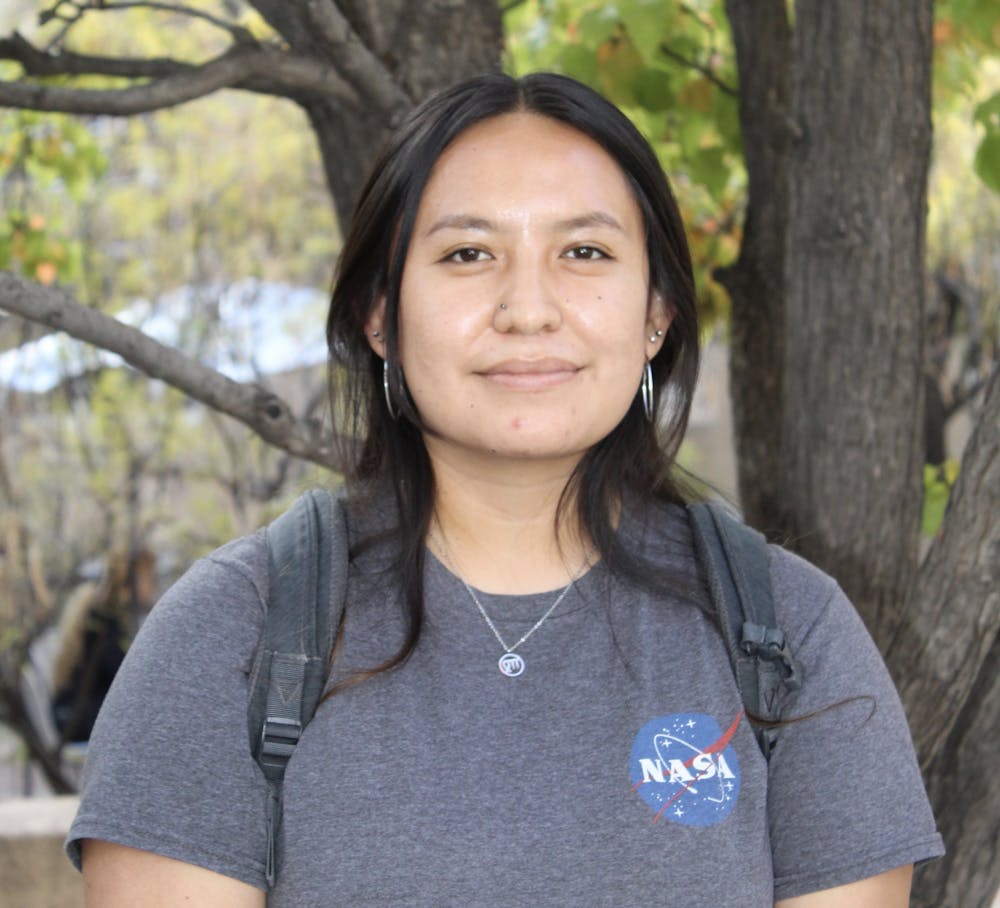The fight for climate justice continues at the University of New Mexico and senior Raven Alcott is standing at the forefront of the action, acting as a voice for Indigenous communities.
As a student majoring in environmental science with a minor in Native American studies, Alcott has been fighting for the complete divestment of the University from fossil fuels as a member of the UNM Leaders for Environmental Action and Foresight (LEAF). She even recently contributed to UNM LEAF’s complaint to the state’s attorney general, which called for an investigation of the UNM Foundation’s financial investment in fossil fuel stocks.
Originally from San Ildefonso Pueblo, Alcott’s goal is to be a voice for Indigenous communities in the fight against climate change, and UNM LEAF gives her an opportunity to do that in the campus ecosystem.
“(In the complaint) we really emphasized and tried to highlight the contradictions between the University of New Mexico and their investments (and) their goals and missions, and how that impacts indigenous and frontline communities, especially as the University of New Mexico is a Hispanic-serving institution,” Alcott said.
Kineo Memmer, UNM LEAF director of meeting operations, met Alcott at an event with the Land Witness Project and has since come to know Alcott as a good friend and dedicated activist.
“She’s super hardworking. When we started working on the divestment complaint, she really stepped up over the summer and she started putting a lot of work into it … She’s just one of the most hardworking people I’ve ever met,” Memmer said.
Alcott’s interest in environmental justice first arose in her high school science classes, where she gained first-hand experience through environmental science coursework and learned about the impacts of climate change on Indigenous communities.
“(My) high school teacher really emphasized climate change,” Alcott said. “We would go out into the field into tribal communities and see how those effects were (taking) place, but also how the tribal communities were addressing the issues and effects.”
Since then, Alcott has been invested in speaking out against the impacts of climate change on marginalized communities in New Mexico, who often experience the effects of climate change earliest and most heavily. She feels that environmental justice is a pivotal factor in many of the issues faced by the state’s marginalized communities since “there are many extraction industries targeting impoverished communities” but at the same time, those same industries employ Indigenous people so the industries are difficult to remove.
Alcott is the co-president of UNM’s American Indian Science and Engineering Society chapter as well as a member of the Student Solidarity Coalition at UNM.
“I think (Alcott) works a lot harder than she gives herself credit for and she’s just doing so many things that it’s honestly hard for even me to keep track of it … Sometimes she forgets to sit back and realize how hard that she’s working, and I think that’s really important to know about her,” Memmer said.
Get content from The Daily Lobo delivered to your inbox
After finishing her undergraduate degree, Alcott hopes to pursue her Ph.D. in environmental science. She said environmental science scholar Robin Wall Kimmerer and University of New Mexico Native American studies professor Gregory Cajete are her inspirations in her research objectives of paleoclimatology and making space for Indigenous voices. Both Kimmerer and Cajete have work that is heavily focused on the inclusion of Indigenous perspectives into Western approaches to science.
“I truly aspire to find a space or make more space for Indigenous knowledge in environmental science research so that I can better work with my community and homelands,” Alcott wrote to the Daily Lobo.
Zara Roy is the news editor at the Daily Lobo. She can be contacted at news@dailylobo.com or on Twitter @zarazzledazzle






